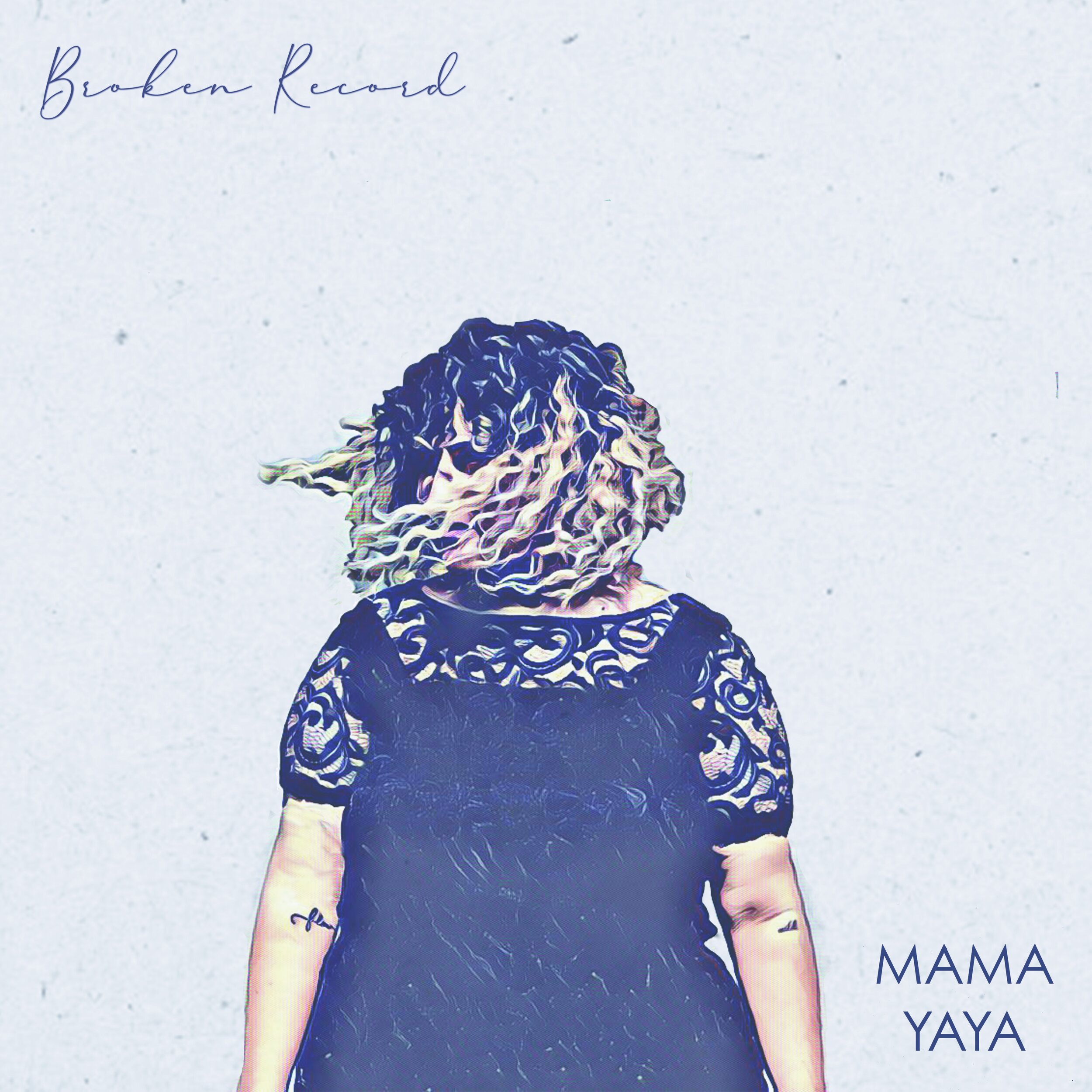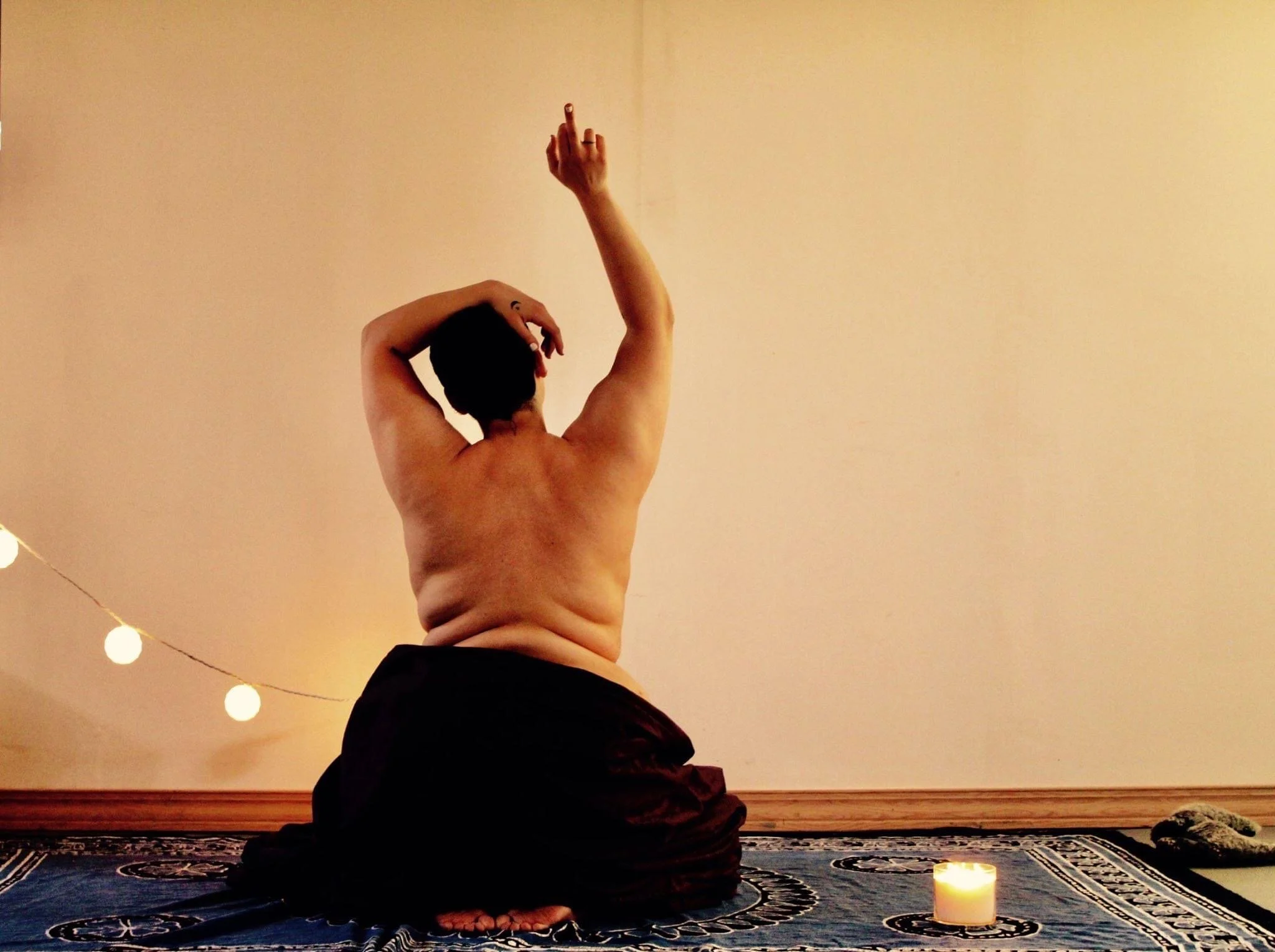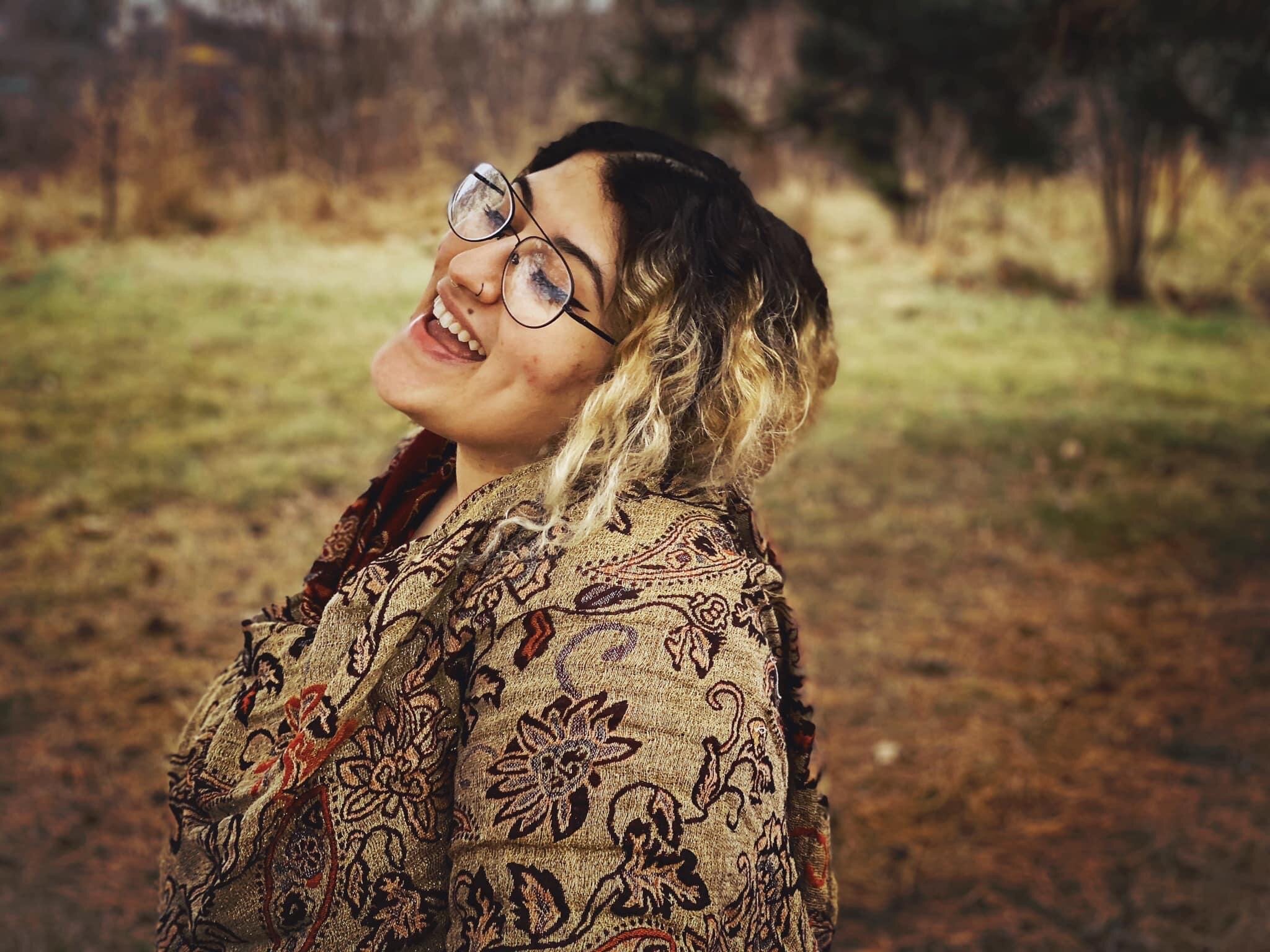Through music, healing, and body positivity, Mama Yaya is making her own traditions
Mama Yaya got started in music by playing Cinderella’s evil stepmother in a fifth-grade musical. Now, the Chicago-based pop singer-songwriter is realizing her own dreams.
Following a run to the second round in the latest season of “American Idol,” Mama Yaya released her first EP, “Broken Record,” in May 2020 with producer Jake Bass. On the eve of its release, Palestine in America caught up with Mama Yaya — the daughter of a Jewish mother and Palestinian father — to talk about “American Idol,” music, body positivity, her family dynamic, and more.
Editor’s note: We edited the Q&A for concision and clarity.
Palestine in America: What was the “American Idol” experience like?Mama Yaya: There were a lot of points where I was questioning whether or not I should continue to do this for my career, because you’re surrounded by a lot of other talented, wonderful artists, and it’s in your face. It was very, very overwhelming, but it was also beautiful. I got to connect with so many people, and I got to have those really cool experiences.
PiA: On some songs, like “Get Up” and “Heal,” (editor’s note: those songs are not on “Broken Record” but are previously released singles) there seem to be hints and traces of trauma and hardships. What inspired those songs that are a little bit darker?
MY: I’ve witnessed so much in my life, and even the closest people to me have gone through major trauma; growing up with such a chaotic life, you have a lot to talk about; you have a lot to say. And it’s really important for me to be able to express myself with my music. I don’t want to just talk about a-- and t------. I want to talk about some real s---, you know? We can talk about a-- and t------ eventually, sure. But for the most part, I like to keep things real.
PiA: You also have a history as a life coach, specifically with an emphasis on healing. Tell us about that.
I think it’s really important to be very vulnerable and very transparent with your pain and with your experiences, so that other people, if they are going through something similar, or if they need to relate to something, they can. I was offering [healing sessions] because of COVID-19. I just wanted to give people a free — because of the economy — a free, safe space if they needed to talk.
PiA: You’ve stated that one of your dreams is to be a plus-size body activist and model. Why is that cause important to you?
MY: I’m a plus-size woman, and I have always been like a cute little chunky monkey growing up. It was really, really tricky for me growing up and being constantly bullied and also wanting to make my career in the music industry, which is very particular most of the time. Five or six years ago, I decided to do a semi-nude body-positivity photoshoot. And it was a really big deal. It was extremely freeing for me. I was just like, “This is it; these are my curves; these are my rolls; oh well! Like, suck it! You’re not going to get to tell me that this is beautiful or it’s not beautiful; you don’t get to tell me that anymore.” I got a lot of backlash from the Jewish side of my family and a lot of backlash from the Palestinian side of my family, and it was extremely traumatic. But it was ultimately very freeing because it’s what I believe in. I got a lot of messages from men, from women, who were like, “Oh, I might think that I’m beautiful, too, because you did that. I’m ready to look at myself in a different way because I’m not going to do what I keep doing, which is trying to fit into societal bulls---.”
Could you share a bit about your family dynamic and upbringing, and how, if at all, it has influenced your music and you personally?
MY: I’m the oldest of four. My mother is Ashkenazi Jewish, and my father is Palestinian Muslim. So we were raised Muslim — and very conservative, traditional Muslim. My dad is from Khalil, which is Hebron. He is a super cool villager shepherd who married my lawyer, professor mother from Chicago. Basically, my mom was overseas [30 years ago in Jerusalem] making Aliyah, and my dad was working in a kitchen at the hostel she was staying at.
Growing up really conservative, really traditional, and then becoming such an outspoken [woman] … it didn’t go so well for a long time; it probably still isn’t going very well, but I am really proud that I wanted to make these decisions for myself, and that I wanted to be a musician, and that I wanted to be a body-positivity activist. It means that much more to me because I made those decisions willingly to be myself.
I want to create new traditions; I want to be able to say, “I’m Palestinian, I’m Jewish, and these are my traditions,” while also making Maqluba and also making Malfoof and Mansaf and all of these wonderful Palestinian dishes, and also Matzo ball soup and Gefilte fish. I want to keep my traditions but also cultivate and make my own.








